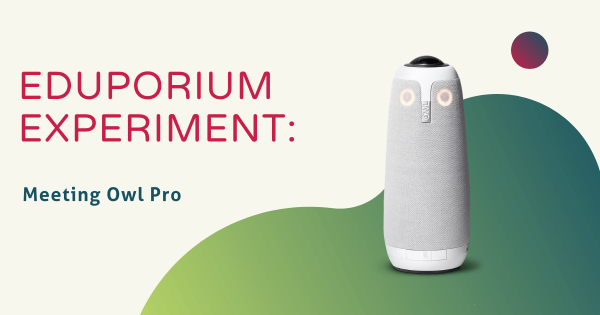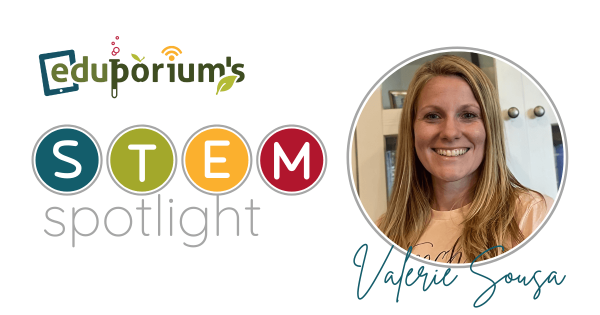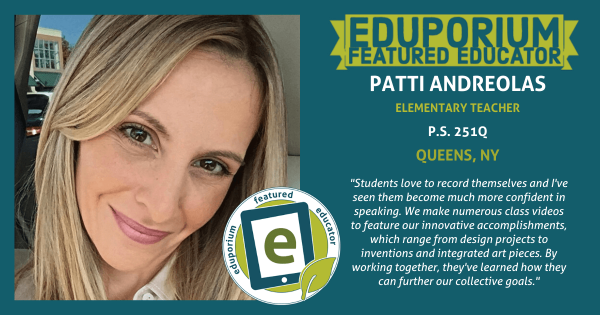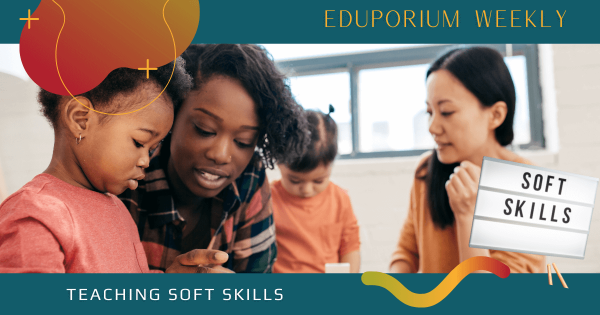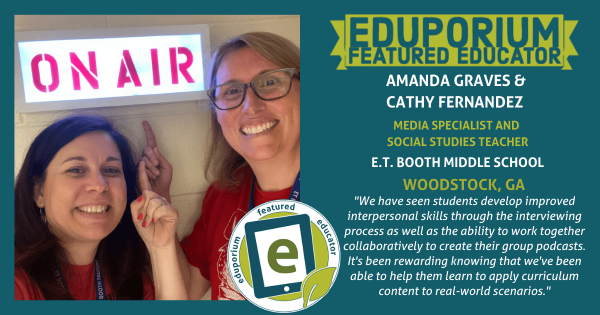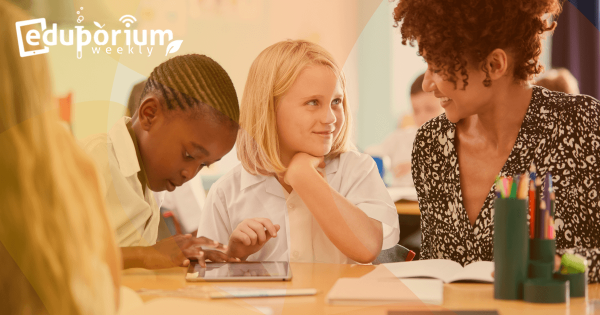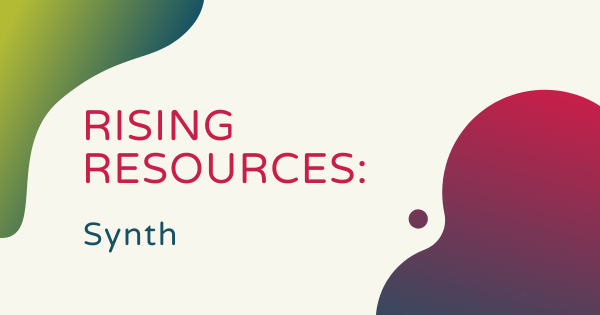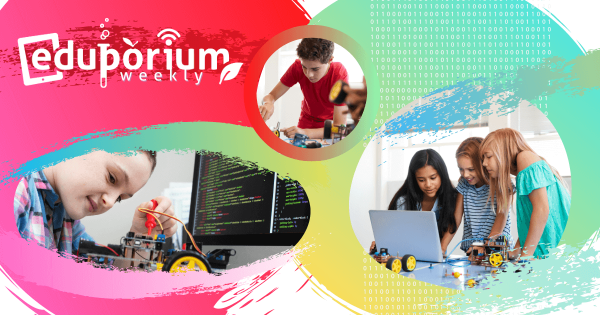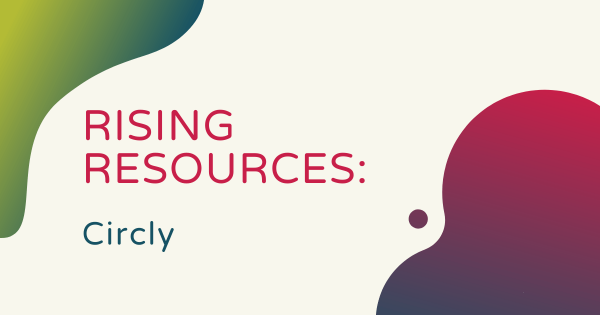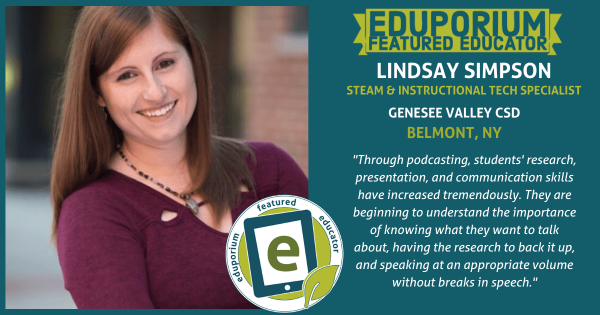The Meeting Owl Pro packs plenty of versatility in its compact form. Though under 11 inches in height, it helps educators create enhanced inclusion, drive engagement, and ensure everyone’s voice is heard. It’s actually a three-in-one camera, microphone, and speaker that helps educators unlock active learning in any environment.
Soft Skills
-
Eduporium's STEM Spotlight: Valerie Sousa
Valerie is an author, educator, and huge proponent for STEM education. She’s helped lead hands-on STEM experiences for students and helped expand their minds with some of her favorite STEM-related books. Whether it’s hands-on coding or stimulating creative thoughts, Valerie definitely believes in the power of collaboration and community. -
Eduporium Featured Educator: Patti Andreolas
Our newest Featured Educator is Patti Andreolas, an elementary teacher from Queens, NY. Patti has become involved in a variety of innovative projects with her students, helping them develop both hard and soft skills in the classroom. Whether it’s with physical or digital EdTech tools, she’s seen how hands-on learning can impact how students develop. -
Eduporium Weekly | It's Not that Hard to Teach Soft Skills
The hands-on, physical skills students build through experiences are commonly referred to as hard skills and they’re certainly valuable to their futures. What about soft skills, though? What are they, why are they so widely talked about, and what can K-12 teachers do to help make sure their students develop these beneficial skills, too? -
Featured Educators: Amanda Graves and Cathy Fernandez
Amanda and Cathy each work at the E.T. Booth Middle School in the Cherokee County School District (GA). They work together in a number of creative ways to help empower students to create technology projects, specifically with podcasting. Despite facing some challenges, this pair of educators has found some inspiring ways of using EdTech tools! -
Eduporium Weekly | Looking At Learning Loss
Most students weren’t afforded the same learning opportunities in the last year and some struggled to access any educational experiences at all. The debate, however, centers on what constitutes ‘loss’ and how that relates to each student. So, what do we know? It’s incredibly difficult to pinpoint levels of learning loss and how they differ among students. -
Rising Resources | Synth for Student-Teacher Communication
Some students need intentional effort to be made in order to settle into their learning situation, feel more comfortable participating, or use it as a base to become more social with their peers. If educators don’t have the time for one-on-one conversations, they can still communicate using Synth—the focus of this week’s Rising Resources post! -
Eduporium Weekly | The Importance of Coding Education
The importance of providing students with the opportunity to learn key computer science skills is often the top priority. We know how vital these skills may turn out to be for a large number of them. Empowering students to learn these skills early and perfect them often can lead to a whole lot more opportunities. -
Rising Resources | Circly in Remote Learning
Circly is characterized as a visual organizer platform that helps create easier collaboration. It’s free and can help all students organize and visualize ideas or help educators collaborate and learn with peers. Learn why we chose to explore Circly in the latest installment of our Rising Resources blog. Keep reading to learn more about it! -
Eduporium Featured Educator: Lindsay Simpson
Though she and her students have dealt with various challenges during the course of the COVID-19 pandemic, Lindsay has found some creative ways to keep them engaged and developing STEM skills. After starting a student podcast last year and adapting it to the current situation, it ended up being a super valuable piece of the learning her students continue to




